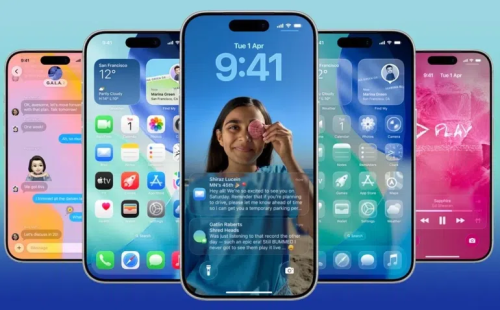
Music can have both positive and negative effects on studying, depending on the student and the type of music. Read on to learn how academic performance and cognition can be affected by music, and how to improve your own study habits.
Benefits of Studying with Music
More and more, students are bringing headphones with them to libraries and study halls. But does it actually help to listen to music when studying? While the so-called ‘Mozart effect’, a term coined from a study that suggested listening to music could actually enhance intelligence, has been widely refuted, there are still many benefits of listening to music while studying:
- Music that is soothing and relaxing can help students to beat stress or anxiety while studying.
- Background music may improve focus on a task by providing motivation and improving mood. During long study sessions, music can aid endurance.
- In some cases, students have found that music helps them with memorization, likely by creating a positive mood, which indirectly boosts memory formation.
Drawbacks of Listening to Music while Studying
And still, despite these benefits, studies have shown that music is often times more distracting than it is helpful.
- Students who listen to music with lyrics while completing reading or writing tasks tend to be less efficient and come away having absorbed less information.
- Loud or agitated music can have adverse effects on reading comprehension and on mood, making focus more difficult.
- Students who use music to help them memorize sometimes need to listen to music while taking the test in order to reap the benefits of this study method. In the silent test-taking environment, these students may find it more difficult to recall the information.
Ultimately, the effects of music on study habits are dependent on the student and their style of learning. If easily distracted, students should most likely avoid music so they can keep their focus on their work. Conversely, students who function better as multi-taskers may find that music helps them to better concentrate.
In a nutshell, music puts us in a better mood, which makes us better at studying – but it also distracts us, which makes us worse at studying.
So if you want to study effectively with music, you want to reduce how distracting music can be, and increase the level to which the music keeps you in a good mood.
Music can put us in a better mood
You may have heard of the Mozart effect – the idea that listening to Mozart makes you “smarter”. This is based on research that found listening to complex classical music like Mozart improved test scores, which the researcher argued was based on the music’s ability to stimulate parts of our minds that play a role in mathematical ability.
However, further research conclusively debunked the Mozart effect theory: it wasn’t really anything to do with maths, it was really just that music puts us in a better mood.
Research conducted in the 1990s found a “Blur Effect” – where kids who listened to the BritPop band Blur seemed to do better on tests. In fact, researchers found that the Blur effect was bigger than the Mozart effect, simply because kids enjoyed pop music like Blur more than classical music.
Being in a better mood likely means that we try that little bit harder and are willing to stick with challenging tasks.

Music can distract us
On the other hand, music can be a distraction – under certain circumstances.
When you study, you’re using your “working memory” – that means you are holding and manipulating several bits of information in your head at once.
The research is fairly clear that when there’s music in the background, and especially music with vocals, our working memory gets worse.
Likely as a result, reading comprehension decreases when people listen to music with lyrics. Music also appears to be more distracting for people who are introverts than for people who are extroverts, perhaps because introverts are more easily overstimulated.
Some clever work by an Australia-based researcher called Bill Thompson and his colleagues aimed to figure out the relative effect of these two competing factors – mood and distraction.
They had participants do a fairly demanding comprehension task, and listen to classical music that was either slow or fast, and which was either soft or loud.
They found the only time there was any real decrease in performance was when people were listening to music that was both fast and loud (that is, at about the speed of Shake It Off by Taylor Swift, at about the volume of a vacuum cleaner).
But while that caused a decrease in performance, it wasn’t actually that big a decrease. And other similar research also failed to find large differences.

So… can I listen to music while studying or not?
To sum up: research suggests it’s probably fine to listen to music while you’re studying – with some caveats.
It’s better if:
- it puts you in a good mood
- it’s not too fast or too loud
- it’s less wordy (and hip-hop, where the words are rapped rather than sung, is likely to be even more distracting)
- you’re not too introverted.







